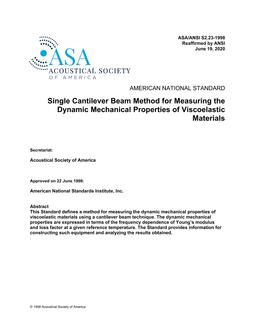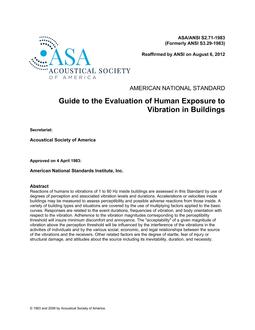Click here to purchase
Includes informational spreadsheet programmed to perform the calculations specified in the standard.
This standard specifies three methods, in ascending order of complexity of use and potentialaccuracy, for the estimation of the sound pressure levels that are effective when a hearing protector isworn. The application of the procedures in turn requires an estimate of the real-ear attenuation of thedevice for groups of users and an estimate of the noise levels to which the users are exposed. Thesimplest method is the Noise Level Reduction Statistic for use with A-weighting (NRSA) that can bedirectly subtracted from an A-weighted sound level or sound exposure estimate. A more accurateprocedure is the Noise Level Reduction Statistic, Graphical (NRSG) that requires measurements ofboth the A- and C-weighted sound levels or exposures, and the application of a set of graphical data.Potentially the most accurate approach is the octave-band method utilizing the octave-band real-earattenuation and noise measurement data. Each of the simplified ratings, the NRSA and NRSG, is to becomputed at both the 80th and 20th percentiles to reflect the range of performance to be expectedbased on the variation in the attenuation data.
Product Details
- Published:
- 08/20/2007
- ANSI:
- ANSI Approved
- Number of Pages:
- 42
- File Size:
- 1 file , 1.7 MB


